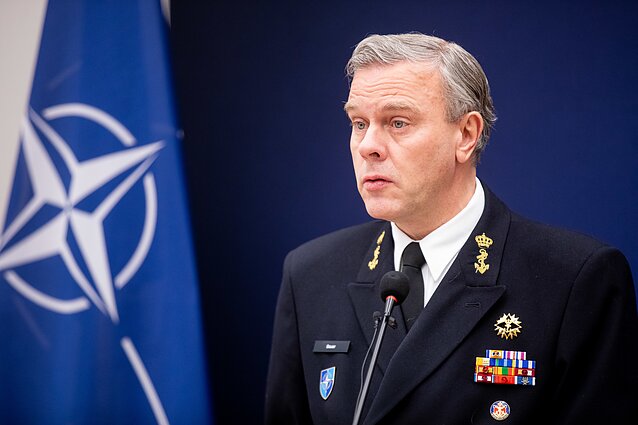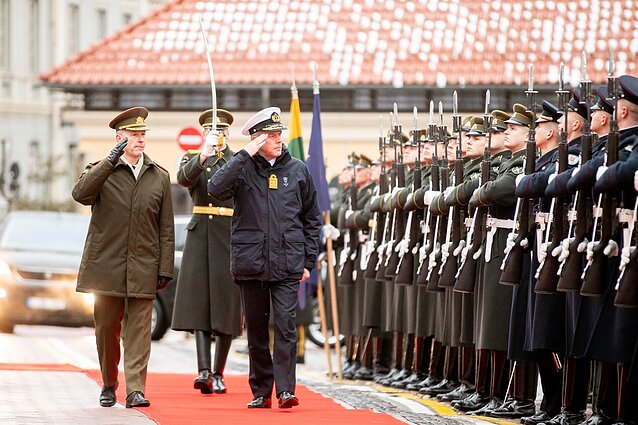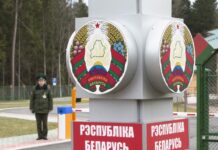
Military Committee Chair Robert Bauer in Vilnius
NATO has not seen any signs that Russia might be planning to attack the Baltic states, according to Admiral Rob Bauer, chairman of the NATO Military Committee. He told reporters in Vilnius that, in the military sense, the Russia’s ongoing military buildup in Belarus could be viewed as a “combination of capabilities”. “If you look at the posture of the Russian troops in Belarus, then yes, you have to consider militarily, whether it is a threat to the Baltic states and, more particular, to Lithuania now. But then, of course, you have to look at the intent as well: is there indication that the Russians or Belarus have an intention to hurt the Baltic states, and particularly Lithuania?” he said on February 7. “Up until now, we don’t see an intent, we don’t expect an attack on NATO soil by Russia – either directly or via Belarus.”
The NATO representative’s view was echoed by Lithuania’s Chief of Defence Valdemaras Rupšys, who said that there is no direct threat tactically or operationally at this stage even though Russia’s military buildup is changing the security situation, and, accordingly, the readiness of NATO and our national military capabilities. “Simply because NATO forces are deployed in Lithuania, it would be irresponsible and I would even say silly to threaten us. That would fundamentally change the situation not in the region, but in the world in general,” Rupšys added.

As we know, Moscow now has over 100,000 of its troops near Ukraine’s borders but denies plans to invade its neighbour. Some of its forces are deployed in Belarus where joint drills are set to begin this week. Russia demands a reduction of NATO forces in Eastern Europe and reassurances that countries like Ukraine and Georgia will never join NATO. The military bloc says it will not budge on security guarantees to its members and open door policy. As tensions between Russia and Ukraine continue to rise, US President Joe Biden sent more American troops to Poland, Romania and Germany in a move by Washington to demonstrate America’s commitment to NATO’s eastern flank.
On February 6, German Defence Minister Christine Lambrecht said Berlin was considering sending an additional army contingent to Lithuania. Asked whether such a decision would be executed via NATO or under a bilateral basis, Bauer said that “one does not exclude the other”. “If you want to have decision quickly, it most likely be bilateral, because it does not require the consent of all allies,” he said, adding that it could also mean the presence of bigger forces.
The NATO Military Committee will probably be tasked next week “to look at the posture along our borders”, Bauer said, adding that the assessment will depend on further actions by Russia and Belarus. “That will then result in military advice on where troops should go and the numbers and preferred options militarily. Then that will lead to a decision within NATO to change posture that we had,” the admiral said. In his words, the Alliance’s decision does not override and cancel possible bilateral agreements.
Bauer also says the Alliance still hopes for a diplomatic solution to defuse tensions between the West and Russia. “We still believe there is a diplomatic way out, and that’s basically what we are doing: on the one hand, we try to continue with the diplomatic talks, to make sure that Russia understands that we are listening to their concerns and that we are trying to find solutions to those concerns. And on the other hand, we are looking at our own readiness with regard to the Alliance to make sure that Russia understands that if they take any measures against the alliance, that it will have serious consequences,” Bauer said. LRT.lt





























